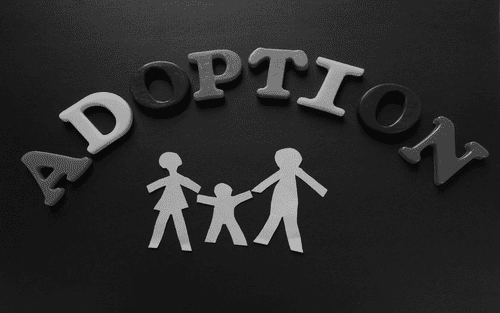Why Adopt Internationally?
There are several reasons you should adopt internationally. One such reason is that you are giving a potentially underprivileged child the opportunity to flourish by providing access to opportunities that otherwise may not have been available to them in their home country. Another reason is that many who adopt within the United States are adopting from foster care, which means they assume the risk that the child may be reunified with the biological parent eventually. With international adoptions, you do not assume the risk of potentially losing the child after placement, and you typically avoid the involvement of biological parents.
Tax Credit
Another incentive to international adoption is the Adoption Tax Credit. You can claim the federal adoption tax credit upon finalization of an international adoption. The Tax Credit is based on your income and federal income tax liability. If you had expenses any year before the adoption was finalized, then the credit can be claimed on the year the adoption is finalized. Further, any expenses you have therefrom you can claim the credit for that corresponding year. Look here for more details.
NOTE: If you have already adopted internationally, then you may still be able to claim the credit for the year you adopted.
How To Begin
First, you will want to determine the age and gender of the child you wish to adopt. Each country varies in relation to the age and gender of children available at a given time. This is explored in more detail below.
Second, choose the right adoption agency. In North Dakota, there are several options, but ultimately you will want to ensure the agency you choose is Hague-accredited. The following is a brief listing of agencies that are Hague-accredited and offer services in North Dakota: (1) Wide Horizons for Children; (2) All God’s Children International; (3) Bethany Christian Services; and (4) Holt International.
Hague-Accredited?
The Hague Adoption Convention is an international treaty that is designed to protect children adopted internationally and reduce opportunities for human trafficking. Each country that is Hague-Compliant has adopted a central authority to oversee that the requirements set forth by the convention are met. The requirements for Hague-accredited entities force greater transparency across the board. (e.g., Hague-compliant agencies are forced to itemize and disclose associated adoption fees).
Home Study
Third, you will be required to complete a home study in compliance with 8 CFR § 204.311. There are specific requirements associated with a home study and who may conduct it, as well as specific conditions based on the chosen adoption country. As mentioned, each country has its own adoption eligibility requirements and some are stricter than others. You will be required to meet the requirements of both the United States and the Country you choose. Some of the requirements are age specific. For example, if you are adopting as a couple, then you are required to be at least 24 years of age and fill out a Form I-800A. This form along with detailed instructions can be found on the U.S. Citizenship and Immigration Services website.
So, now that you’ve completed your home study, what’s next?
Meet And Bring Your Child Home
Fourth, you will be required to submit the required form to apply for the child to immigrate to the United States (Form I-800 or Form I-600). If you are deemed eligible, then you will be asked to travel to the child’s country to conduct a series of visits. The frequency, duration, and scope of these visits are dependent on the requirements specific to the country. Once these country-specific requirements are complete you may apply for a Visa for the child to immigrate to the United States through a DS-260 Application. You will need to meet all of that country’s adoption requirements thereafter to obtain custody of the child. The final step in the visa process entails the embassy or consulate in that Country scheduling a visa interview, to determine adoption eligibility. If everything is correct, then you will receive a visa.
Finalize Your International Adoption (Re-Adoption)
Fifth, the final step in the process upon returning to the United States is having the foreign adoption reviewed by a North Dakota court to confirm that it complies with state laws. North Dakota Century Code § 14-15-17 outlines the final requirements to legally validate your foreign adoption in-state. It’s important to note that there are additional statutory requirements depending on the numeric category of your visa. If you have a IH-3 or IR-3 visa, then subsection 2(a) of the codes lays out the alternative requirements. Upon satisfaction of the requirements, the North Dakota court will forward the decree for issuance of your child’s birth certificate. N.D.C.C. § 14-15-17(2)(b).
Contact SW&L
We understand that the international adoption process can seem overwhelming. There are several moving parts in a massive mechanism. It helps extraordinarily throughout this process to have the help of legal counsel. Please do not hesitate to contact us!










